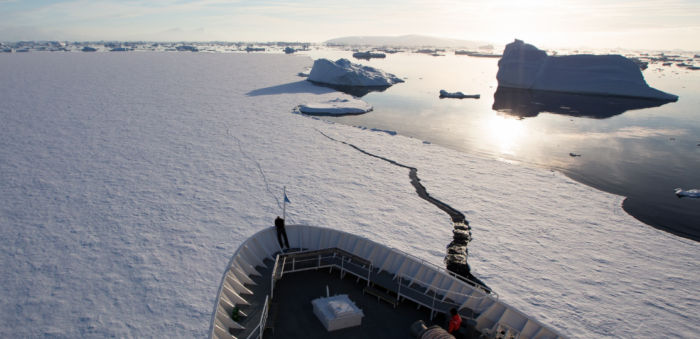During April the Marine Environment Protection Committee (MEPC 72) agreed to move forward on developing an Arctic HFO ban. The ban on the use and carriage of HFO as fuel in the Arctic was co-sponsored by eight countries: Finland, Iceland, Norway, Sweden, the United States, Germany, the Netherlands, New Zealand.
Backround
Three IMO Members submitted papers raising concerns, but agreed with the overall need to consider mitigation measures: Russia, Canada, and the Republic of the Marshall Islands.
[smlsubform prepend=”GET THE SAFETY4SEA IN YOUR INBOX!” showname=false emailtxt=”” emailholder=”Enter your email address” showsubmit=true submittxt=”Submit” jsthanks=false thankyou=”Thank you for subscribing to our mailing list”]
The Clean Arctic Alliance welcomed this development, as it said:
This is exactly what the Clean Arctic Alliance is campaigning for – and while there’s much to celebrate, there’s still a long road to getting the ban in place. Public support – through initiatives such as the Arctic Commitment – have been instrumental in raising awareness of an the urgent need for an Arctic HFO ban, which will help protect both the marine environment, and the communities who depend upon it.
During the meeting, many other countries backed the proposal, with several giving consideration to the Canadian proposal to assess the impact of a ban on coastal communities, including: Australia, Belgium, Czech Republic, Denmark, France, Estonia, Ireland, Japan, the League of Arab States, Poland, Portugal, Spain, Switzerland, and the UK.
What happens now
The proposal for the ban on HFO, along with other measures have been gathered into a “scope of work” and it will be sent to an IMO technical sub-committee to be evaluated in the early part of 2019, if enough information on assessing the impact is presented to the next meeting of MEPC, which is in October. Basically, the central component of the work remains to move forward so that a ban can be put in place by 2020, or 2021.
In order to ensure the HFO ban, the Clean Arctic Alliance says that the momentum must continue,the proposal for the ban has top be well-supported.
Moreover, there is an increasing support for an HFO ban. To this, a resolution from the Nordic Council, two resolutions from the European Parliament, and support of a number of industry bodies which have signed the Arctic Commitment, have contributed greatly.






























































